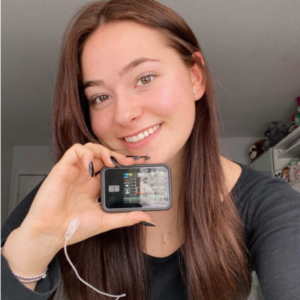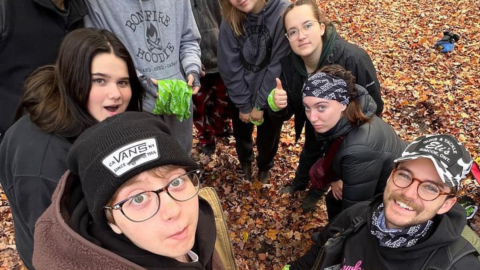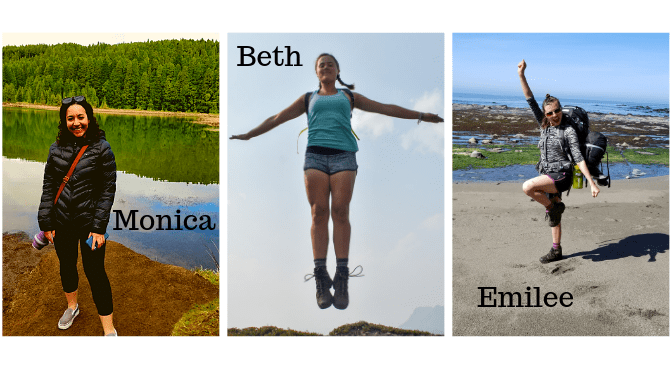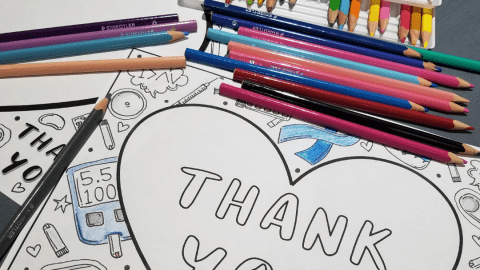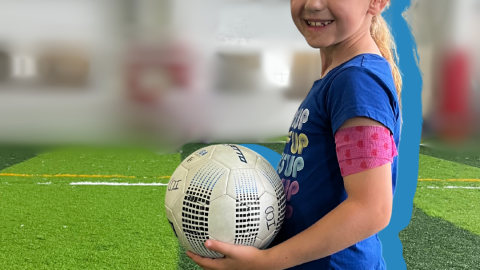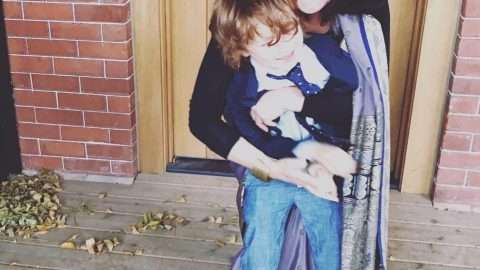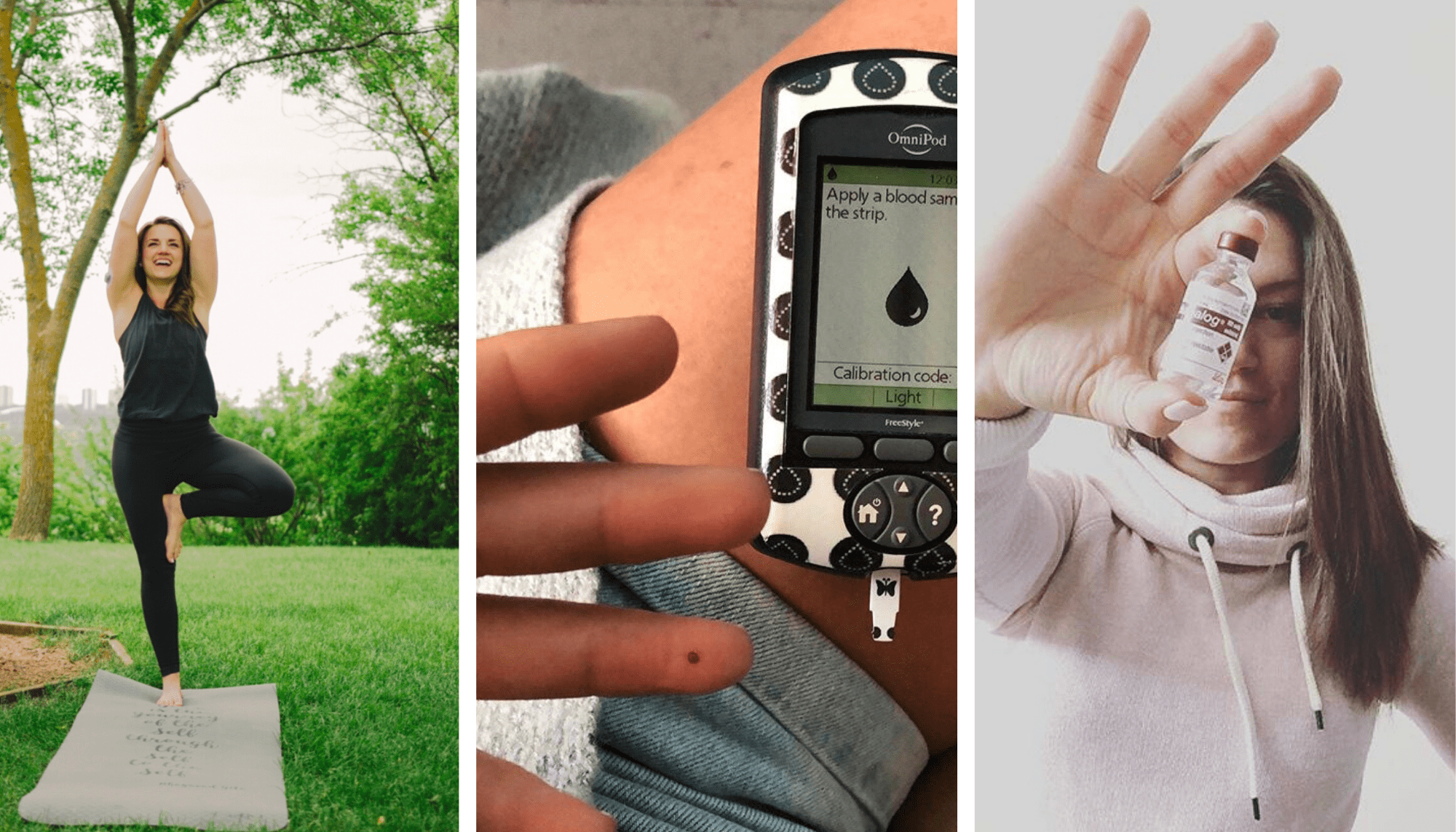by Kate Beaulieu.
As the summer sun set on my high school years, I felt a mix of excitement and apprehension about the next chapter of my life. I was about to embark on the thrilling yet daunting adventure of university life. This transition was not just about moving to a new place, making new friends, and tackling tougher academic challenges. It also meant managing my type 1 diabetes in an entirely new environment.
I was diagnosed with type 1 diabetes when she was 11 years old. Over the years, I’ve become adept at managing my blood sugar levels, counting carbs, and always carrying low treatments. However, the thought of handling my diabetes without the safety net of my parents and familiar surroundings was intimidating, I will admit. I wasn’t going to let my condition stop me from achieving my goals of moving out and living on my own. Before I was diagnosed that was a goal of mine and diabetes wasn’t going to change that.
“Sometimes late night studying and my pump running out of insulin was too much for me and I would break down, or have a rollercoaster day of blood sugars and just cry from how drained my body left.”
I knew before heading to university I would need a plan. My mom and I sat down and mapped out how I would manage my diabetes in this new chapter. We connected with the school to have emergency contacts in place and located the nearest pharmacy and health services on campus. I made sure to have ample diabetes supplies and a mini fridge for insulin in my dorm. I learned about the Diabetes Hope Foundation from my endocrinologist, who recommended their transition program for young adults heading to college or university. DHF provided me with practical tools and resources, and emphasized the importance of registering with the university’s disability services office. I contacted the university’s disability services to ensure I had the necessary accommodations for exams and classes. After this, many of my worries had been relieved and I felt more confident in the upcoming transition.
At the beginning of university, I felt isolated and alone but during orientation week, I met some girls on my floor, and quickly formed a bond with them. They made me feel comfortable to be open with my diabetes from the start. But what was really special to me was how they wanted to know more about my T1D. They were supportive and eager to learn, which gave me a sense of relief. They would always tell me “You live with it, the least we can do is understand and support you”. I had never had friends before who were so passionate about learning about my condition and doing everything they could to help me. They all wanted to have the Dexcom Share app which made me so happy. During late-night study sessions and outings, they would remind me to check her blood sugar or let me know if they got a Dexcom alert and always made sure I had access to low snacks and water. Their understanding and care helped me feel less alone in managing my condition.
Living in a dorm meant adjusting to shared spaces and mealtimes. I learned to navigate the dining hall, carb counting new meals and always having a snack on hand. I also had a diabetic friend from home living on campus as well. Having them there was a source of comfort and encouragement. Especially if either of us needed insulin pump or CGM supplies last minute, we would provide for each other.
As the weeks turned into months, I grew more confident in my ability to balance university life and diabetes management. I learned to advocate for myself, whether it was requesting a break during an exam to check my blood sugar, explaining to a professor why I needed to eat during class, or why an alarm was going off. I realized that my diabetes did not define me, but it was a part of my journey. I struggled with diabetes burnout more than I had years prior. Sometimes late night studying and my pump running out of insulin was too much for me and I would break down or have a rollercoaster day of blood sugars and just cry from how drained my body left. I’m glad I had the supportive people around me who got me through those hard times. I faced moments of frustration and fear but also experienced growth, independence, and newfound resilience.
I hope my journey can remind others that while diabetes can present unique challenges, it can also inspire courage and adaptability. As I continue my university journey, I know that I am not alone – I have a community of support and the inner strength to thrive. For those embarking on a similar path, my advice is simple: plan ahead, communicate openly, and lean on your support network. Embrace the adventure, knowing that you are capable of managing your diabetes and achieving your dreams.
Kate joined the ICD Team for the summer of 2024 as our Social Media Coordinator. She has been raising awareness about the signs and symptoms of type one diabetes from a young age through Sugardrop Sweetwear, and has grown into her role as a role model and influencer. Follow her on instagram @sugardrop_co and on TikTok sugardrop.co
